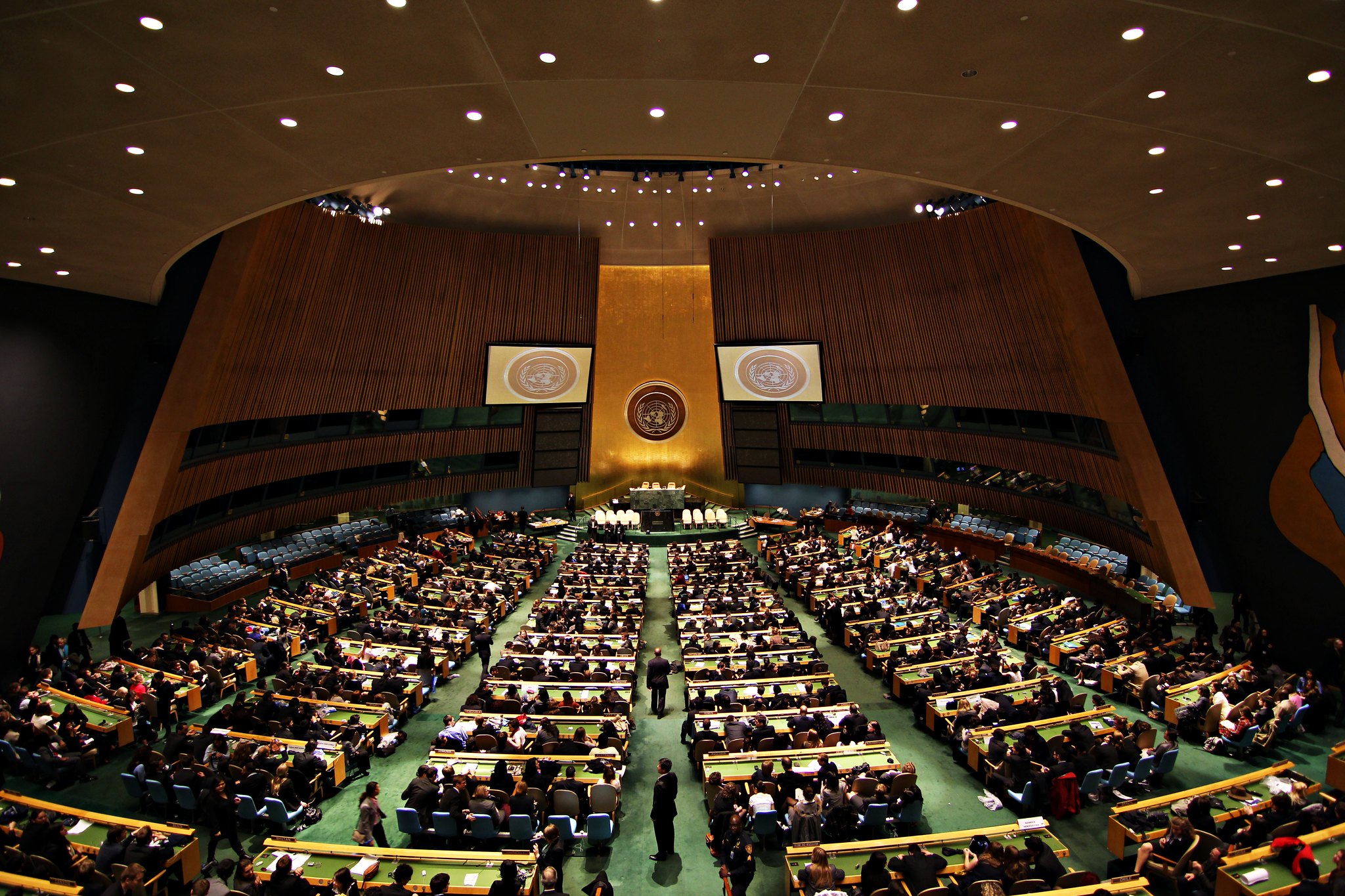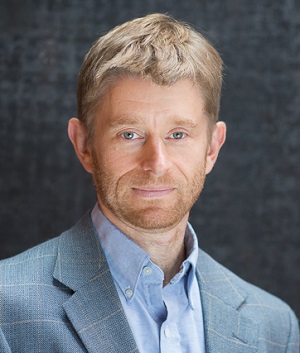Civil Society Should Be at the Center of Foreign Policy
In an era of democratic backsliding, governments are increasingly disconnected from citizens. The Biden administration should elevate engagement with civil society in response.

Published by The Lawfare Institute
in Cooperation With

President Biden’s welcome promise to unite democratic values with diplomatic leadership will draw immediate attention to how the new administration handles relations with authoritarian regimes. With democratic backsliding in every region of the globe widening the distance between citizens and their governments, however, changing the tone of diplomacy with autocrats will go only so far to promote democratic principles. To elevate values in foreign policy—with democracy and human rights at the center of that focus—the Biden administration should also reconfigure the United States’s engagement with civil society organizations, which are, in some cases, more authentic representatives of citizen interests than their governments and often more aligned with human rights norms.
The global trend of rising authoritarianism is unlikely to end soon: Freedom House has documented 14 consecutive years of global democratic decline. Fraudulent elections, manipulation of coronavirus-related restrictions, and a willingness to use force in their narrow interests make for leaders who are less dependent on a popular mandate to govern and governments that are less responsive to the people they are supposed to serve. Traditional approaches of state-to-state diplomacy are limited to influencing executives in countries where governments are disconnected from their citizens and unaccountable, and these approaches risk lending outside legitimacy to leaders who lack a popular mandate. Civil society increasingly fills the gap that authoritarian drift has created between citizens and the state.
In autocracies and backsliding democracies, civil society organizations play many roles. They are primary service providers for health and other essential needs when the government abdicates its responsibility. Civil society groups are thought leaders and citizen advocates that speak out against human rights abuses and build pressure for improved governance, honest elections and economic transparency. When governments have grown so unresponsive and authoritarian that they are beyond transformation, citizen coalitions have been at the forefront of peaceful protest movements that have toppled regimes—for example, resistance committees that organized in Sudan to push Omar al-Bashir from power. The coronavirus pandemic has upended the civil society landscape, but many organizations have adapted with greater agility than governments.
Outreach to civil society is nothing new for American diplomats. Many diplomats routinely meet with civil society leaders, who are often a valuable source of insight into political dynamics and popular sentiment. American foreign aid programs are a major source of funding for civil society organizations that operate in capitals, remote rural regions and everywhere in between. Recognizing the importance of these organizations, the Obama administration sought to expand dialogue with and support to civil society through its Stand with Civil Society initiative, but that momentum was lost during the Trump presidency.
President Biden’s planned Summit for Democracy will be an early test of whether the administration will place civil society closer to the heart of diplomacy. Summit organizers should seek robust civil society participation, including representatives from countries whose governments are not in attendance. Civil society leaders, including from the United States, should have prime speaking opportunities, and their standing at the event should be equal to that of government representatives. These leaders should be asked to make concrete commitments to advance democratic principles, similar to what should be asked of their government counterparts. In each of the proposed summit focus areas—fighting corruption, countering authoritarianism and advancing human rights—sustained progress is unimaginable without civil society organizations. Generating the list of invitees will be difficult; as others have suggested, it would make sense to prioritize participation by organizations that devote themselves to the three focus areas. Placing civil society at the center of the gathering would flip the script of the usual staid summitry.
Building on the Stand with Civil Society Initiative, at the summit senior officials across the administration should commit to elevating engagement with civil society leaders. In countries where the state is disconnected from its citizens—for example, Nicaragua, Belarus or South Sudan—the Biden administration should put those encounters roughly on par with meetings with government officials from those countries (with the important caveat that the safety of civil society interlocutors must be considered). The standard itinerary for high-level visits by American diplomats prioritizes several rounds of meetings with government officials over engagements with civil society or the private sector. That template can be rewritten. In backsliding democracies and autocracies, American officials often emphasize that any rift in relations is with the government, not with the people—prioritizing engagements with civil society (including virtually in the coronavirus era) puts that sentiment into practice. This will no doubt upset the government, but it sends the right message—probably more so than condemnatory statements issued from afar.
American officials should pay particular attention to think tanks. They may be seen as part of the establishment in Washington, D.C., but in other countries, think tanks are relatively new to the civil society scene and are proliferating, increasingly demonstrating their ability to incubate policies and develop thought leaders who transition into government positions. American diplomats engage with think tanks, but these interactions can be episodic. China, by contrast, has taken a more sustained and structured approach, including through a regular China-Africa Think Tank Forum. The Biden administration should seek to institutionalize dialogue with think tanks, especially newer organizations from the global south. In 2016, the State Department’s Bureau of African Affairs started along this path, organizing a two-day dialogue with think tanks from across the continent, attended at the assistant secretary level, to listen to their views and have a candid exchange in a relatively informal setting (a departure from the more formal Chinese approach). This dialogue was envisioned to be repeated annually, which the Trump administration never did—the new administration should resume the event and replicate it across regions.
An increased emphasis on civil society organizations should be accompanied by changes in how the United States supports them. Current funding mechanisms are focused tightly on supporting individual projects aligned with American policy priorities. While those priorities often match civil society goals, they are not always the same. Funds provided by the United States typically can be used only for approved projects, and spending is closely monitored. While oversight of how taxpayer dollars are deployed is important, this approach too often restrains civil society organizations, limiting their ability to innovate on the fly and set their own agendas. The result is that assistance meant to be empowering can instead be constraining. Resources should more frequently be deployed to support “core funding” for civil society organizations, which they can use to pay operational costs while spending a portion on initiatives driven by their priorities (which could be broadly agreed to in advance). Creative mechanisms to support less formalized, grassroots organizations, which can be highly agile and effective, should be expanded. Private donors increasingly emphasize core funding and supporting informal organizations, but the United States is the largest funder of civil society organizations globally, so its actions and policies heavily influence the overall sector. There are small examples to build on: the congressionally funded National Endowment for Democracy provides core funding, and the U.S. Agency for International Development’s Office of Transition Initiatives has mechanisms and authorities to support less formalized organizations.
Finally, U.S. diplomats and domestic officials should partner to accelerate linkages between American civil society and counterpart organizations abroad. This already happens organically but would benefit from an infusion of government support, through funding and cross-cultural connections. Part of the “humility and confidence” foreign policy vision laid out by Secretary of State Antony Blinken should include recognizing the lessons that Americans have to learn from other nations on how to counter inequality and racial injustice and advance reconciliation. Exchanges between civil society organizations is one strategy for injecting those lessons into the domestic discourse. Programs such as the Young African Leaders Initiative and the Young Southeast Asian Leaders Initiative provide platforms to accelerate these linkages.
This is not an argument for ignoring authoritarian regimes. Diplomacy, even with autocrats, is an opportunity to influence behavior. But in countries with less-than-democratic leaders, civil society organizations can still be engines of democratic progress and are more likely to be aligned with—and positioned to advance—the values that the Biden administration seeks to unite with diplomacy.





